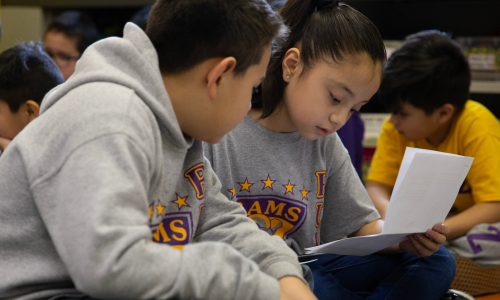
In previous posts, we discussed what RTI (Response to Intervention) is and why it’s important to early learning as well as the role that universal screening and progress monitoring assessments play in an early childhood (Pre K – 3rd grade) setting.
With many assessment options to choose from, it can be difficult to determine which ones will best meet your district, school and classroom needs. One way to ensure a successful implementation of an early childhood assessment is to be prepared with the right questions upfront.
We have identified 16 key questions to ask when evaluating tools. This list will help you think critically about how a new assessment will fit with your schedule and standards as well as how you might use the data. We hope these questions help you make the best decision for your early childhood program.
Educational Assessment Purpose and Use
1. Does the assessment’s intended purpose match our goals?
2. Is it aligned to our standards (e.g. Common Core)?
3. Does it have adequate reliability and validity?
4. Does it screen for students at risk?
5. Does the resulting data inform instructional next steps?
6. Can it measure growth throughout the year and across grades?
7. Can it help predict performance on high stakes tests?
Time and Resources Required for Implementation
8. Can the early childhood assessment be administered with current technology and personnel?
9. Does it generate results immediately?
10.Can our staff be trained easily?
Developmental Appropriateness
11. Is the content and format of the assessment child-friendly and age-appropriate?
12. Is it engaging and motivating for young students?
13. Is it responsive to a range of student performance levels?
Quality of Reports
14. Are the results objective?
15. Are the reports easy to interpret and use?
Ongoing Support
16. Is ongoing support provided by the educational assessment vendor?
When choosing early childhood assessment tools, we must prioritize both developmental appropriateness and actionable data. The questions above are a starting point.
If you’ve recently selected or developed your own assessment tool (early childhood or otherwise), we’d love to hear what questions you posed in your decision-making process. Please leave a comment below!







